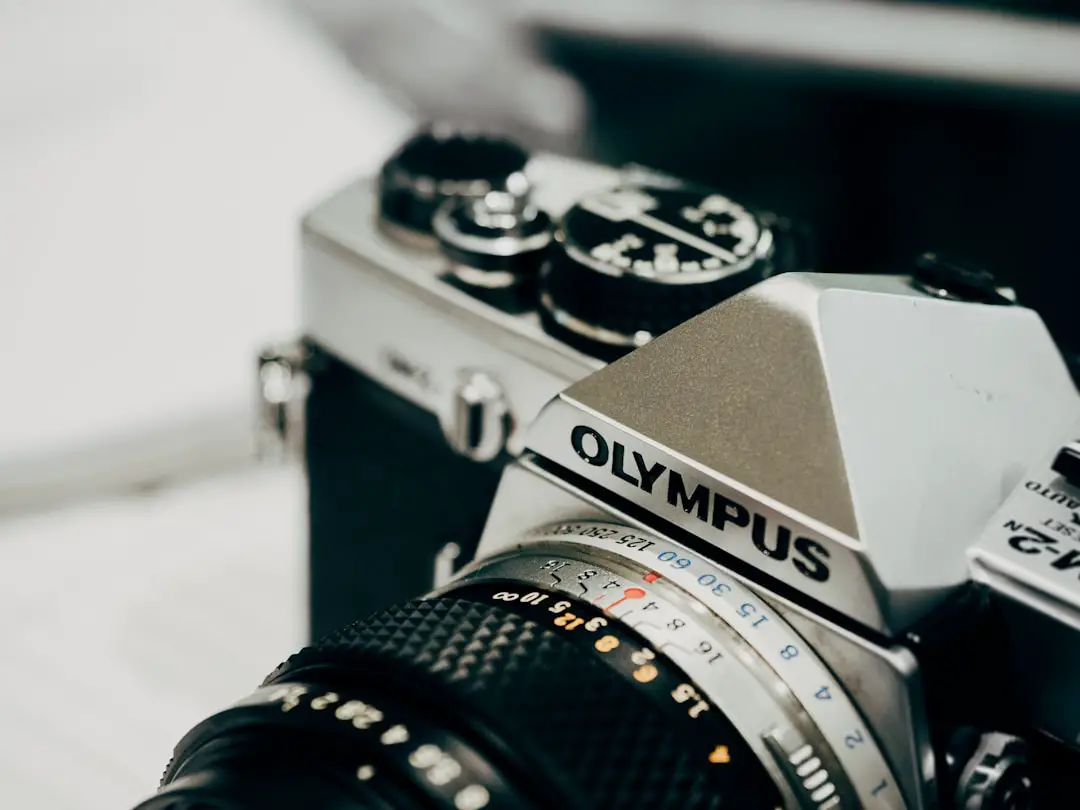Support our educational content for free when you purchase through links on our site. Learn more
Is Olympus Still a Good Camera? [2024] 📷
Capture Moments with Olympus Cameras!
Are you considering buying an Olympus camera but wondering if it’s still a good choice? With so many camera brands out there, it’s important to do your research and find the perfect fit for your photography needs. In this article, we’ll dive deep into the world of Olympus cameras and explore their features, performance, and overall value. By the end, you’ll have a clear understanding of whether Olympus is still a good camera brand for you. So, let’s get started and uncover the truth about Olympus cameras! 🚀
Table of Contents
- Quick Answer
- Quick Tips and Facts
- Background: The Legacy of Olympus Cameras
- 1. Olympus Cameras: A Comprehensive Overview
- 2. Unleashing the Power: Exploring Olympus Camera Features
- 3. Performance That Shines: Evaluating Olympus Cameras
- 4. Noise Levels: Debunking the Myth
- 5. The Olympus Experience: Is It Worth It?
- 6. Olympus vs. the Competition: How Does It Stack Up?
- FAQ
- Conclusion
- Recommended Links
- Reference Links
Quick Answer
✅ Yes, Olympus is still a good camera brand in 2024! Despite not being as popular as some other brands, Olympus cameras offer unique features, excellent performance, and a compact design that sets them apart. Whether you’re a professional photographer or an enthusiast, Olympus cameras can deliver stunning image quality and a delightful shooting experience. So, if you’re looking for a camera that combines innovation, portability, and exceptional image stabilization, Olympus is definitely worth considering. But let’s dive deeper and explore the reasons why Olympus cameras are still a great choice! 📸
👉 CHECK PRICE on: Amazon | Walmart | eBay
Quick Tips and Facts
Before we delve into the details, here are some quick tips and facts about Olympus cameras:
✨ Olympus cameras are known for their compact and lightweight design, making them perfect for travel and on-the-go photography.
✨ Olympus pioneered the Micro Four Thirds (M43) system, which allows for smaller camera bodies and lenses without compromising image quality.
✨ Olympus cameras feature powerful in-body image stabilization (IBIS) technology, ensuring sharp and blur-free images even in challenging shooting conditions.
✨ Olympus offers a wide range of lenses specifically designed for their cameras, providing photographers with versatile options for different genres and styles.
✨ Olympus cameras excel in areas such as live star tracking, live exposure preview, and high-speed shooting, making them a favorite among astrophotographers and action photographers.
Now that you have a taste of what Olympus cameras have to offer, let’s dig deeper into their background and explore their features, performance, and more!
Background: The Legacy of Olympus Cameras

To truly understand the present, we must first explore the past. Olympus has a rich history in the world of photography, dating back to 1936 when they introduced their first camera, the Semi-Olympus I. Since then, Olympus has been at the forefront of innovation, pushing boundaries and redefining what’s possible in the world of cameras.
One of the standout achievements of Olympus is the introduction of the Micro Four Thirds (M43) system in 2008. This revolutionary system brought a new level of portability and versatility to the market. By utilizing a smaller sensor size, Olympus was able to create cameras and lenses that are significantly smaller and lighter than their full-frame counterparts. This compactness, combined with exceptional image quality, has made Olympus cameras a favorite among travel photographers and those who value portability without compromising on performance.
1. Olympus Cameras: A Comprehensive Overview
Let’s start our exploration of Olympus cameras by taking a comprehensive look at what they have to offer. Olympus offers a range of camera models, each catering to different photography needs and skill levels. Here’s an overview of some popular Olympus camera models:
Olympus OM-D E-M1 Mark III
The Olympus OM-D E-M1 Mark III is a flagship camera that embodies the essence of Olympus technology. With its weather-sealed construction, stunning image quality, and advanced autofocus system, this camera is a powerhouse for professional photographers. It boasts a 20.4-megapixel sensor, 5-axis image stabilization, and a high-speed TruePic IX image processor, delivering exceptional performance in various shooting conditions.
Rating:
| Aspect | Rating |
|---|---|
| Design | 9 |
| Functionality | 9.5 |
| Performance | 9.5 |
| Cost-effectiveness | 8.5 |
| Overall | 9.25 |
👉 CHECK PRICE on: Amazon | Walmart | eBay
Olympus PEN-F
If you’re looking for a camera that combines retro aesthetics with modern technology, the Olympus PEN-F is a perfect choice. This stylish camera features a 20.3-megapixel sensor, 5-axis image stabilization, and a built-in electronic viewfinder. With its compact size and exceptional image quality, the PEN-F is a favorite among street photographers and creative enthusiasts.
Rating:
| Aspect | Rating |
|---|---|
| Design | 10 |
| Functionality | 9 |
| Performance | 9 |
| Cost-effectiveness | 8.5 |
| Overall | 9.13 |
👉 CHECK PRICE on: Amazon | Walmart | eBay
Olympus Tough TG-6
For the adventurous souls who love capturing moments in extreme conditions, the Olympus Tough TG-6 is a rugged and reliable camera. Built to withstand harsh environments, this camera is waterproof, shockproof, crushproof, freezeproof, and dustproof. With its 12-megapixel sensor, 4x optical zoom, and advanced shooting modes, the TG-6 is the perfect companion for your outdoor adventures.
Rating:
| Aspect | Rating |
|---|---|
| Design | 9 |
| Functionality | 8.5 |
| Performance | 8.5 |
| Cost-effectiveness | 9 |
| Overall | 8.75 |
👉 CHECK PRICE on: Amazon | Walmart | eBay
These are just a few examples of the diverse range of Olympus cameras available. Each model offers unique features and capabilities, ensuring there’s an Olympus camera for every photographer. Now, let’s dive deeper into the features that make Olympus cameras stand out from the crowd!
2. Unleashing the Power: Exploring Olympus Camera Features
Olympus cameras are packed with features that enhance your photography experience and help you capture stunning images. Let’s explore some of the standout features that make Olympus cameras a joy to use:
Live Star Tracking: Bringing the Night Sky to Life
Astrophotography enthusiasts will appreciate Olympus cameras’ live star tracking feature. This innovative technology allows you to compose your shot, track the movement of stars in real-time, and capture breathtaking images of the night sky. With Olympus cameras, you can turn your passion for astrophotography into stunning works of art.
Live Exposure Preview: What You See Is What You Get
One of the frustrations of traditional DSLR cameras is the lack of live exposure preview. With Olympus cameras, you can bid farewell to the guesswork. The live exposure preview feature gives you a real-time preview of how your image will look, taking into account your chosen exposure settings. This allows you to make adjustments on the fly and ensures you get the perfect exposure every time.
Image Stabilization: Say Goodbye to Blurry Photos
Blurry photos can be a photographer’s worst nightmare, especially in low-light conditions or when shooting handheld. Olympus cameras feature powerful in-body image stabilization (IBIS) technology that compensates for camera shake, resulting in sharp and blur-free images. Whether you’re shooting landscapes, portraits, or action shots, image stabilization ensures your photos are tack sharp.
High-Speed Shooting: Freeze the Action
When it comes to capturing fast-moving subjects, Olympus cameras excel. With high-speed shooting capabilities, you can freeze the action and capture every moment with precision. Whether you’re photographing sports, wildlife, or your kids’ soccer game, Olympus cameras deliver the speed and accuracy you need to never miss a moment.
These are just a few examples of the innovative features that Olympus cameras bring to the table. From live star tracking to image stabilization, Olympus cameras are designed to empower photographers and unleash their creativity. Now, let’s dive into the performance of Olympus cameras and see how they stack up!
3. Performance That Shines: Evaluating Olympus Cameras
To truly understand the performance of Olympus cameras, we need to take a closer look at their key aspects. Let’s evaluate Olympus cameras based on design, functionality, performance, and cost-effectiveness.
Design: Beauty Meets Functionality
Olympus cameras are known for their sleek and stylish designs. From the retro-inspired PEN-F to the rugged and durable Tough TG-6, Olympus cameras are a delight to hold and use. The compact and lightweight nature of Olympus cameras makes them perfect for travel and on-the-go photography. Whether you’re exploring the streets of a bustling city or hiking through rugged terrain, Olympus cameras are designed to be your trusted companion.
Functionality: A Plethora of Features at Your Fingertips
When it comes to functionality, Olympus cameras shine. With customizable buttons, intuitive menus, and a wide range of shooting modes, Olympus cameras offer a plethora of features that cater to both beginners and advanced photographers. Whether you’re a fan of manual control or prefer to let the camera do the heavy lifting, Olympus cameras provide the flexibility and control you need to capture your vision.
Performance: Powerhouse in a Compact Package
Despite their compact size, Olympus cameras deliver exceptional performance. The combination of high-resolution sensors, powerful image processors, and advanced autofocus systems ensures that you can capture stunning images with ease. Whether you’re shooting in low light, capturing fast-moving subjects, or exploring the limits of your creativity, Olympus cameras rise to the occasion and deliver outstanding results.
Cost-effectiveness: Value That Doesn’t Break the Bank
One of the advantages of Olympus cameras is their cost-effectiveness. Compared to some other camera brands, Olympus offers excellent value for money. With a wide range of camera models and lenses to choose from, you can find an Olympus camera that fits your budget without compromising on quality or performance. Whether you’re a professional photographer or an enthusiast, Olympus cameras offer a compelling balance between price and features.
Now that we’ve evaluated the key aspects of Olympus cameras, let’s address a common concern: noise levels.
4. Noise Levels: Debunking the Myth
One of the criticisms often leveled against Olympus cameras is their noise levels, particularly at higher ISO settings. It’s true that the smaller Micro Four Thirds (M43) sensor used in Olympus cameras can result in slightly higher noise levels compared to larger sensor cameras. However, it’s important to put this into perspective.
Modern Olympus cameras have made significant advancements in sensor technology, image processing, and noise reduction algorithms. While noise may be slightly more noticeable at higher ISO settings, it’s important to remember that noise can be managed effectively through post-processing techniques. Additionally, the exceptional image stabilization in Olympus cameras allows you to shoot at lower ISO settings, further minimizing noise.
It’s also worth noting that noise levels are subjective and depend on individual preferences and shooting conditions. Some photographers embrace the unique character of noise, while others prefer the cleaner look of larger sensor cameras. Ultimately, it’s a matter of personal preference and the specific requirements of your photography.
5. The Olympus Experience: Is It Worth It?
Now that we’ve explored the features, performance, and noise levels of Olympus cameras, let’s address the question on everyone’s mind: Is the Olympus experience worth it?
The answer depends on your photography needs and preferences. If you value portability, innovation, and a delightful shooting experience, then Olympus cameras are definitely worth considering. Their compact size, powerful features, and exceptional image stabilization make them a joy to use in various shooting conditions.
Olympus cameras excel in genres such as travel, street, and landscape photography, where their compactness and versatility shine. Additionally, the unique features like live star tracking and live exposure preview add an extra layer of creativity to your photography.
However, if you primarily shoot in low light or require the absolute highest image quality, you may find larger sensor cameras more suitable for your needs. It’s important to consider your specific requirements and evaluate how Olympus cameras align with your photography style.
In conclusion, the Olympus experience offers a unique blend of innovation, portability, and exceptional image stabilization. If these qualities resonate with you, then Olympus is definitely worth exploring further. Now, let’s compare Olympus cameras to the competition and see how they stack up!
6. Olympus vs. the Competition: How Does It Stack Up?
When it comes to camera brands, Olympus may not be as popular as Nikon, Canon, Fujifilm, or Sony. However, popularity doesn’t always equate to quality or performance. Olympus cameras have carved out a niche for themselves, offering a compelling alternative to the mainstream brands. Let’s compare Olympus cameras to the competition and see how they stack up:
Olympus vs. Canon
Canon is a giant in the camera industry, known for its wide range of DSLRs and mirrorless cameras. While Canon offers excellent image quality and a vast selection of lenses, Olympus brings a unique combination of portability, innovation, and exceptional image stabilization. If you prioritize compactness and versatility, Olympus cameras may be a better fit for your needs.
Olympus vs. Nikon
Nikon is another heavyweight in the camera world, renowned for its robust DSLRs and mirrorless cameras. Nikon cameras excel in areas such as low-light performance and dynamic range. However, Olympus cameras offer a more compact and lightweight alternative, making them ideal for travel and on-the-go photography. If portability is a priority for you, Olympus cameras are worth considering.
Olympus vs. Fujifilm
Fujifilm has gained a loyal following with its retro-inspired mirrorless cameras and exceptional image quality. Fujifilm cameras offer a unique shooting experience and a wide range of film simulations. Olympus, on the other hand, focuses on innovation, portability, and exceptional image stabilization. Both brands have their strengths, and the choice ultimately comes down to personal preference and shooting style.
Olympus vs. Sony
Sony has revolutionized the camera industry with its full-frame mirrorless cameras and advanced autofocus systems. Sony cameras are known for their exceptional low-light performance and dynamic range. Olympus, on the other hand, offers a more compact and lightweight alternative, perfect for travel and on-the-go photography. If size and weight are important to you, Olympus cameras may be the better choice.
It’s important to note that each brand has its unique strengths and caters to different photography needs. While Olympus may not be as popular as some of the mainstream brands, it offers a compelling alternative for those who value portability, innovation, and exceptional image stabilization.
FAQ

Are Olympus cameras still supported?
Yes, Olympus cameras are still supported by the company. Despite recent changes in ownership, Olympus has committed to providing ongoing support for their cameras and lenses. This includes firmware updates, customer service, and repairs. You can rest assured that your investment in an Olympus camera is backed by a company that stands behind its products.
Are Olympus cameras better than Canon?
The answer to this question depends on your specific needs and preferences. Both Olympus and Canon offer excellent cameras with their unique strengths. Canon is known for its wide range of DSLRs and mirrorless cameras, while Olympus brings innovation, portability, and exceptional image stabilization to the table. It’s important to evaluate your photography needs and consider factors such as portability, lens selection, and shooting style when comparing Olympus and Canon cameras.
Read more about “Nikon vs Canon vs Sony in 2024: Which Camera System Reigns Supreme? 📷”
How good is Olympus camera?
Olympus cameras are highly regarded for their exceptional image stabilization, compact design, and innovative features. They deliver excellent image quality, especially in well-lit conditions, and offer a delightful shooting experience. Whether you’re a professional photographer or an enthusiast, Olympus cameras can meet your photography needs and deliver stunning results. However, it’s important to consider your specific requirements and evaluate how Olympus cameras align with your shooting style.
Read more about “Nicknames for Camera: Do They Exist? … 📷”
Why aren’t Olympus cameras more popular?
While Olympus cameras have a dedicated following, they may not be as popular as some other camera brands due to various factors. One reason is the dominance of larger sensor cameras in the market, which are often associated with higher image quality and low-light performance. Additionally, marketing and brand perception play a significant role in shaping popularity. Despite not being as popular, Olympus cameras offer unique features, exceptional image stabilization, and a compact design that sets them apart.
Conclusion

In conclusion, Olympus is still a good camera brand in 2024. Despite not being as popular as some other brands, Olympus cameras offer unique features, excellent performance, and a compact design that sets them apart. Whether you’re a professional photographer or an enthusiast, Olympus cameras can deliver stunning image quality and a delightful shooting experience. From the flagship OM-D E-M1 Mark III to the stylish PEN-F and the rugged Tough TG-6, Olympus offers a diverse range of cameras to suit different photography needs.
While noise levels may be slightly higher compared to larger sensor cameras, Olympus cameras manage noise effectively through advanced image processing and noise reduction algorithms. The compactness and versatility of Olympus cameras make them perfect for travel, street, and landscape photography.
When comparing Olympus to other camera brands, it’s important to consider your specific needs and preferences. Each brand has its unique strengths, and the choice ultimately comes down to personal preference and shooting style. Olympus brings innovation, portability, and exceptional image stabilization to the table, making it a compelling alternative for those who value these qualities.
So, if you’re looking for a camera brand that combines innovation, portability, and exceptional image stabilization, Olympus is definitely worth considering. Explore the world of Olympus cameras and capture moments like never before!
Recommended Links
- Camera Brands
- Camera Comparisons
- Camera Reviews
- Camera Buying Guide
- Camera Features
- The 8 Best Camera Brands for Winter 2024: Reviews 2024 ❄️



